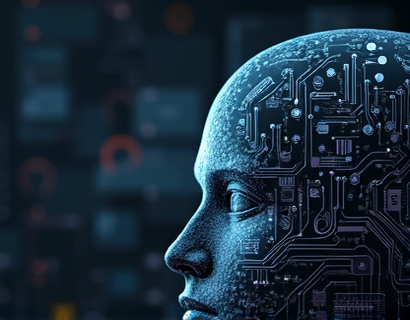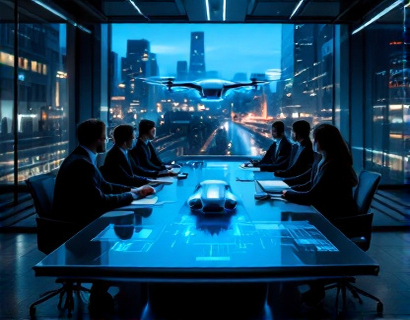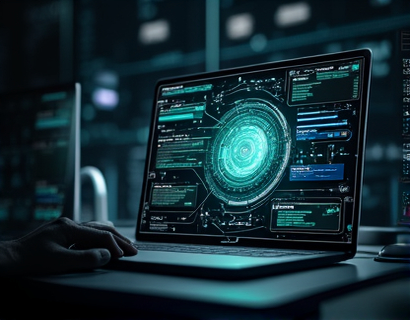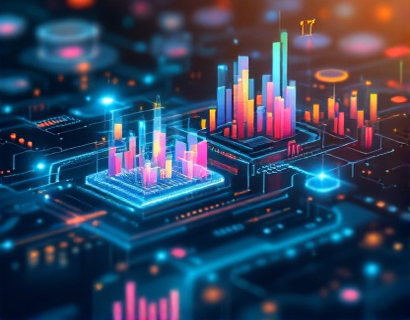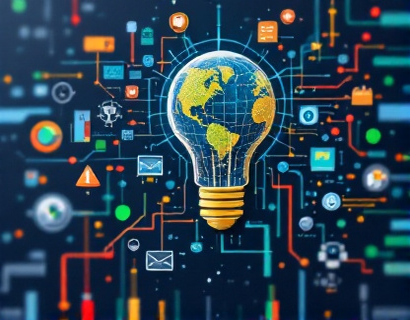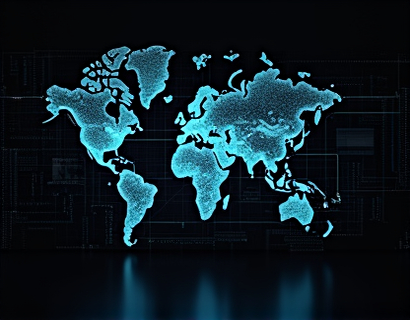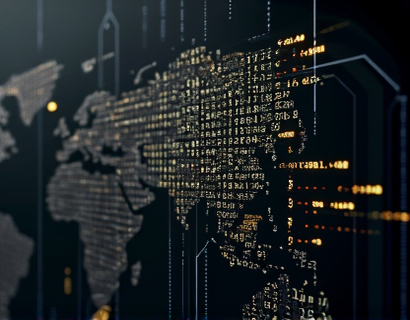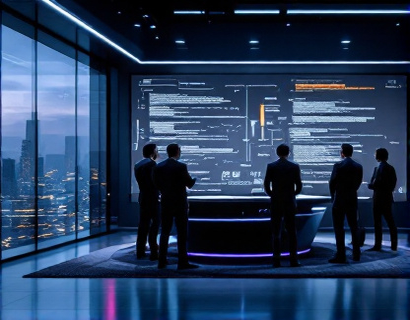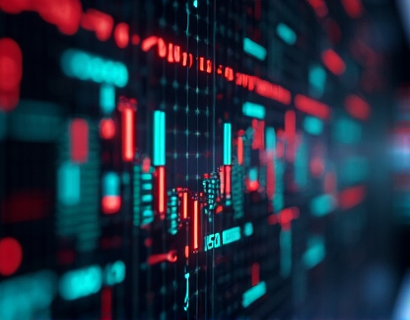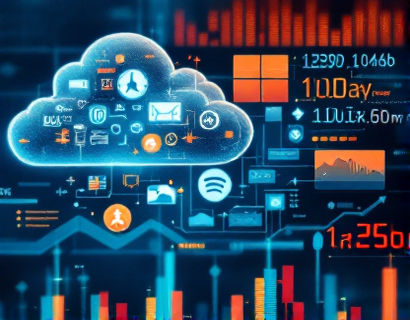Revolutionizing Productivity: The Synergy of AI and Crypto in the Future Workplace
The integration of artificial intelligence (AI) and cryptocurrency is ushering in a new era of productivity and efficiency in the workplace. This synergy is not just a technological advancement but a transformative shift that is redefining how tasks are managed, completed, and optimized. As we delve into this topic, it's essential to understand the individual roles of AI and cryptocurrency and how their combination is creating a powerful toolset for the modern workforce.
Artificial intelligence has been a game-changer in various industries, from healthcare to finance, and now it's making significant strides in enhancing workplace productivity. AI technologies, including machine learning, natural language processing, and predictive analytics, are being leveraged to automate routine tasks, provide insights, and improve decision-making processes. These capabilities are crucial in a world where the volume of data is exponentially increasing, and the need for efficient data management is more pressing than ever.
On the other hand, cryptocurrency, particularly blockchain technology, offers a decentralized and secure way to conduct transactions and manage data. The immutable nature of blockchain ensures transparency and trust, which are vital in a business environment. When combined with AI, cryptocurrency can provide a robust framework for secure, efficient, and transparent operations, further enhancing productivity and trust among collaborators.
AI-Driven Task Management
One of the most immediate impacts of AI in the workplace is in task management. AI-powered tools can analyze vast amounts of data to predict task completion times, identify bottlenecks, and optimize workflows. For instance, AI can schedule tasks based on employee availability and workload, ensuring that resources are used efficiently. This not only reduces the administrative burden but also allows employees to focus on higher-value tasks that require human creativity and critical thinking.
Project management platforms enhanced by AI can provide real-time updates and insights, helping managers to make informed decisions. These platforms can integrate with other tools and services, creating a seamless ecosystem where data flows smoothly between different applications. This integration is crucial for maintaining a cohesive and efficient workflow, reducing the friction that often arises from using disparate systems.
Enhanced Collaboration Through Blockchain
Blockchain technology, with its decentralized and transparent nature, is revolutionizing collaboration in the workplace. Traditional collaboration tools often suffer from issues like data silos, lack of trust, and security concerns. Blockchain addresses these issues by providing a tamper-proof ledger for all transactions and communications. This ensures that all team members have access to the same version of the truth, reducing misunderstandings and conflicts.
Smart contracts, a feature of blockchain, can automate and enforce agreements between parties without the need for intermediaries. This not only speeds up processes but also reduces costs and the potential for errors. For example, in a supply chain scenario, smart contracts can automatically trigger payments once certain conditions are met, such as the delivery of goods. This level of automation and trust is invaluable in complex business operations.
Secure Data Management with AI and Crypto
Data security is a paramount concern in today's digital landscape. The combination of AI and cryptocurrency offers advanced solutions for secure data management. AI can detect and respond to security threats in real-time, using machine learning algorithms to identify patterns and anomalies that may indicate a breach. This proactive approach to security is far more effective than traditional methods that rely on predefined rules and signatures.
Cryptography, the foundation of blockchain, ensures that data is encrypted and can only be accessed by authorized parties. This is particularly important when dealing with sensitive information such as personal data, financial records, and intellectual property. The use of private and public keys in blockchain ensures that only the intended recipients can decrypt and access the data, providing a high level of security and privacy.
Optimizing Resource Allocation
AI and cryptocurrency can also optimize resource allocation within an organization. AI algorithms can analyze historical data and current trends to predict future resource needs, ensuring that the right resources are available at the right time. This predictive capability is especially useful in industries with fluctuating demand, such as manufacturing and retail.
Cryptocurrency can facilitate the exchange of resources and services within a company or between partners. For instance, a company can use a company-specific cryptocurrency to reward employees for completing tasks or achieving milestones. These tokens can be redeemed for various benefits, such as additional time off, training opportunities, or access to premium services. This creates a motivational system that aligns employee goals with organizational objectives.
Decentralized Identity and Access Management
Identity and access management (IAM) is another area where AI and cryptocurrency can make significant improvements. Traditional IAM systems often rely on centralized authorities, which can be vulnerable to attacks and breaches. Blockchain-based IAM solutions use decentralized identity verification, where users control their own identities and grant access to services as needed.
AI can enhance this process by analyzing user behavior and biometric data to authenticate identities more securely. This multi-factor authentication approach not only increases security but also improves the user experience by reducing the need for multiple passwords and authentication steps. The result is a more streamlined and secure access management system that protects sensitive information while maintaining ease of use.
Future Trends and Innovations
As AI and cryptocurrency continue to evolve, we can expect even more innovative applications in the workplace. One promising area is the development of decentralized autonomous organizations (DAOs), which combine blockchain and AI to create self-governing entities. DAOs can automate decision-making processes, distribute ownership, and ensure transparency and accountability in organizational operations.
Another exciting trend is the integration of AI-powered virtual assistants with blockchain-based payment systems. These assistants can not only manage tasks and provide insights but also handle financial transactions seamlessly. For example, a virtual assistant could automatically allocate budget funds to different departments based on AI-driven recommendations, ensuring that resources are used efficiently and effectively.
The future also holds the potential for more advanced predictive analytics, powered by AI and enhanced by the vast amounts of data stored on blockchain. This could lead to more accurate forecasting, better risk management, and more informed strategic decisions. The combination of these technologies will enable organizations to stay ahead of the curve, adapting to changes and capitalizing on new opportunities with greater agility and precision.
Conclusion
The convergence of AI and cryptocurrency is not just a technological trend but a fundamental shift in how we approach productivity and efficiency in the workplace. By leveraging the strengths of both technologies, organizations can create a more secure, transparent, and efficient environment that fosters innovation and growth. As these technologies continue to mature, we can expect even more transformative applications that will redefine the future of work.



